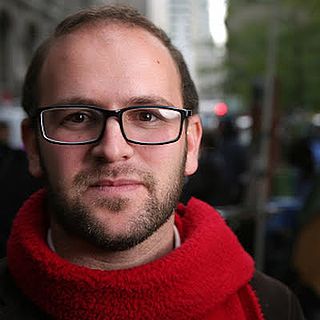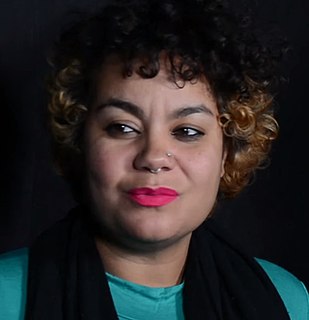Bioneers, under its parent foundation, Collective Heritage Institute, is a nonprofit organization based in New Mexico and California that promotes practical and innovative solutions to global environmental and bio-cultural challenges. The organization operates within a philosophy that recognizes and cultivates the value and wisdom of the natural world. Official Programs include Moonrise Women's Leadership, Restorative Food Systems, Indigeneity Education for Action, and the award-winning Dreaming New Mexico community resilience program.

Youth activism is youth engagement in community organizing for social change. Youth participation in social change focuses more on issue-oriented activism than traditional partisan or electoral politics. Youth have taken lead roles in public protests and advocacy around anti-war activism, anti-crime and government corruption, pro-sexual education, anti-government censorship, expanded educational access, and public transportation access. Technology and the use of digital media has changed the way youth participate in activism globally, and youth are more active in media than older generations.
Cross Rhythms City Radio is a UK community radio station broadcasting to Stoke-on-Trent and Newcastle-under-Lyme, Staffordshire, on 101.8FM. The station is music-driven with contemporary pop, rock, urban music and dance. It is underpinned by Christian values but driven by local issues.
The Johnson–Forest Tendency, sometimes called the Johnsonites, refers to a radical left tendency in the United States associated with Marxist humanist theorists C. L. R. James and Raya Dunayevskaya, who used the pseudonyms J. R. Johnson and Freddie Forest respectively. They were joined by author/activist Grace Lee Boggs, who was considered the third founder.
Community building is a field of practices directed toward the creation or enhancement of community among individuals within a regional area or with a common interest. It is sometimes encompassed under the field of community development.
The United States Social Forum is an ongoing series of gatherings of social justice activists in the United States which grew out of the World Social Forum process, bringing together activists, organizers, people of color, working people, poor people, and indigenous people from across the United States. The goal of the gathering is to build unity around common goals of social justice, to build ties between organizations present at the event, and to help build a broader social justice movement. Planning for the first event was spearheaded by the organization Project South: Institute for the Elimination of Poverty and Genocide with dozens of other organizations from around the United States involved in the process. The US Social Forum defines itself as "a movement building process. It is not a conference but it is a space to come up with the peoples’ solutions to the economic and ecological crisis. The USSF is the next most important step in our struggle to build a powerful multi-racial, multi-sectoral, inter-generational, diverse, inclusive, internationalist movement that transforms this country and changes history."
Benny Andrews was an American of mixed African and European ancestry painter, printmaker, and creator of collages. During the 1950s, he studied at the School of the Art Institute of Chicago, where he began to take an interest in painting. In 1958, he moved to New York City to pursue artistic and activist work. Among other successes, he created art education programs to serve underprivileged students at Queens College and participated actively in the Black Emergency Cultural Coalition (1969). His advocacy of artists of color Howardena Pindell, Sam Gilliam, Roy DeCarava, and others contributed to their increasing visibility and reputation in museums and the historical canon. He received many awards, including the John Hay Whitney Fellowship (1965–66), the New York Council on the Arts fellowships (1971–81), and the National Endowment for the Arts Fellowship (1974–81).

The Trumbullplex is a housing collective and showspace in the Woodbridge neighborhood of Detroit, Michigan, USA.
Shawn A. Ginwright is an Associate Professor of Africana Studies at San Francisco State University and author. His research examines the ways in which youth in urban communities navigate through the constraints of poverty and struggle to create equality and justice in their schools. Ginwright has also been noted for his studies in hip hop academics.
Charles M. Payne, Jr. is an American academic whose areas of study include civil rights activism, urban education reform, social inequality, and modern African-American history. He was the Chief Education Officer for Chicago Public Schools and used to be the Frank P. Hixon Distinguished Service Professor at the University of Chicago's School of Social Service Administration.

Grace Lee Boggs was an American author, social activist, philosopher and feminist. She is known for her years of political collaboration with C. L. R. James and Raya Dunayevskaya in the 1940s and 1950s. In the 1960s she and James Boggs, her husband of some forty years, took their own political direction. By 1998, she had written four books, including an autobiography. In 2011, still active at the age of 95, she wrote a fifth book, The Next American Revolution: Sustainable Activism for the Twenty-First Century, with Scott Kurashige and published by the University of California Press.
American Revolutionary: The Evolution of Grace Lee Boggs is a 2013 American biographical documentary film directed by Grace Lee.

The Walter P. Reuther Library, Archives of Labor and Urban Affairs, located on the campus of Wayne State University in Detroit, Michigan, contains millions of primary source documents related to the labor history of the United States, urban affairs, and the Wayne State University Archives. The building is named for UAW President and Congress of Industrial Organizations President Walter Reuther.
Stephanie Gray Chang is a Democratic politician from Michigan currently representing the 1st Michigan Senate District, She previously served in the Michigan House of Representatives in the 6th District—which comprises the cities of Ecorse and River Rouge and part of the city of Detroit—in the Michigan House of Representatives after being elected in November 2014. She is the first Asian American woman to serve in the Michigan Legislature.
Rasu Jilani is an independent curator, social sculptor, and entrepreneur whose work investigates the intersection between art, culture and civic engagement as a means of raising critical consciousness. The objective of his work is to activate interaction between artists, the local community and the wider public in order to promote awareness around social issues through exhibitions, humanities, community programs, and cultural events.

Justin Wedes is an entrepreneur, community organizer and social justice activist. He is a former member of the Occupy Wall Street movement, founding member of the Detroit Water Brigade and CEO of The Liberati Group, a strategic communications firm.

Adrienne Maree Brown, often styled adrienne maree brown, is an American author, doula, women's rights activist and black feminist based in Detroit, Michigan. From 2006 to 2010, she was the executive director of the Ruckus Society.
Keep Growing Detroit is an organization dedicated to food sovereignty and community engagement in the cities of Detroit, Hamtramck, and Highland Park. Founded in 2013, the program designs and implements initiatives that promote the practice of urban agriculture as a mode of food justice for underrepresented communities, particularly those who do not have access to healthy food options. The goals of Keep Growing Detroit are to educate and empower community members using urban agricultural practices. Programs such as the Garden Resource Program and Grown in Detroit served as catalysts, laying the foundation for Keep Growing Detroit.
In South Korea, Internet activism traces its origin to 2002, when an Internet user named Angma proposed a candlelight vigil for two girls, Hyo-sun and Mi-sun, who were crushed by a U.S. military vehicle in the Yangju Highway Incident. Angma’s post circulated widely online and gained enormous traction, mobilizing ordinary people, especially the Korean youth, to demand SOFA reform and an apology from President Bush through peaceful candlelight protests in Kwanghwamun. Since then, the Internet has continued to serve as a space for open discussion of sociopolitical issues and for grassroots activism in South Korea, giving rise to collective identities. Other major examples of Internet activism in Korea are the 2008 U.S. beef protest, anti-Chosunilbo protests, and online feminist and LGBTQ movements, which have employed hashtags, such as #MeToo.









